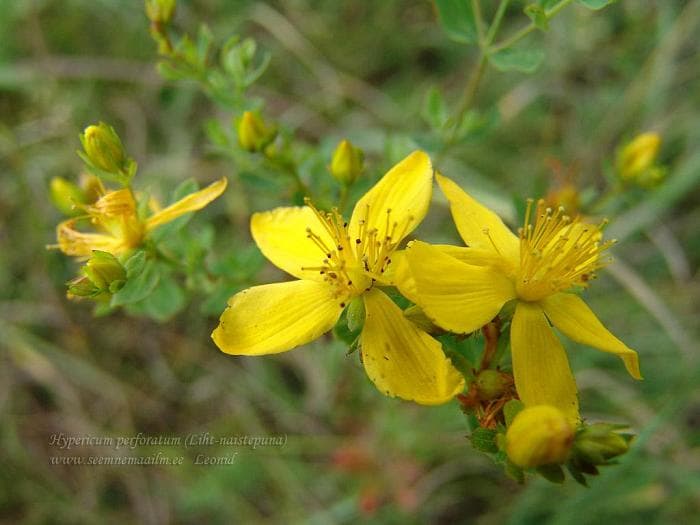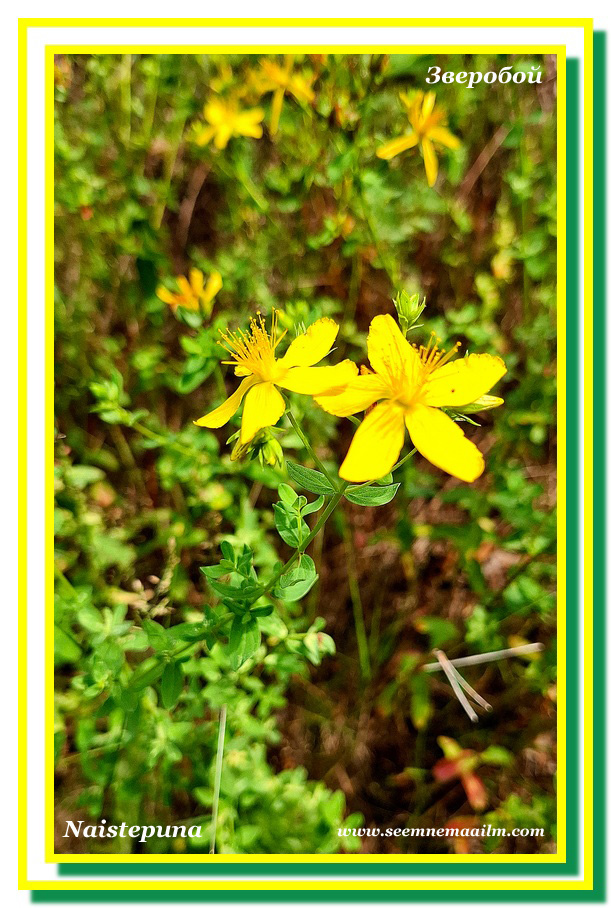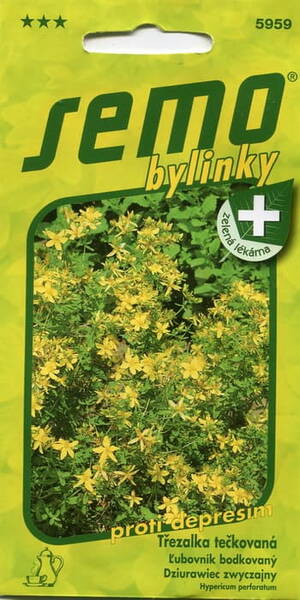St. John's wort is a unique medicinal plant, known as the "remedy for 99 diseases."
Perennial herbaceous plant up to 80 cm high. The stem is ribbed, smooth, branched in the upper part.
Leaves 1-3 cm long, entire, sessile, with numerous glands.
The flowers are large, golden yellow, collected in a wide paniculate inflorescence. Blooms in July-August.
The top third of the flowering plant is used as a spice.
St. John's wort is added to tinctures and soft drinks, as well as to tea.

Agricultural technology.
Seeds are sown in early spring in open ground to a depth of 1-2 cm or in autumn on seedling beds. Seedlings are thinned out according to the scheme of 20x45 cm.
If the seeds are sown in February-March for seedlings, then preliminary stratification will be required:
sow seeds to a depth of no more than 0.5 cm, moisten with a spray bottle, cover with glass and place in a refrigerator (temperature +5 +7 °C).
Crops are kept under such conditions for 10-15 days, then transferred to room conditions (it is necessary to monitor the humidity of crops and ventilation).
At a temperature of +18 +20 °C, shoots appear on the 10-14th day. If there is no germination, repeat the "cold-heat" method in the same sequence!
Seedlings dive into boxes in the phase of 2-3 true leaves. Seedlings are planted in the open ground after 4-6 weeks.
Prefers sunny places or light partial shade with loose, non-acidic soil. In one place it can grow 5-7 years.

Common St. Johnswort, perforate St John s-wort, St. John's wort, amber, goatweed, klamathweed.
* Medicinal properties of St. John's wort .
St. John's wort has a pronounced astringent, hemostatic, antimicrobial, anti-inflammatory and stimulating effect.
St. John's wort in the form of a decoction or infusion is used for rheumatism, diseases of the gastrointestinal tract, liver, gall bladder, cystitis, urinary incontinence in children,
hemorrhoids, as well as an external remedy for second- and third-degree burns, for lubricating gums, and for rinsing the mouth for gingivitis and stomatitis.
St. John's wort stimulates heart activity, increases blood pressure, and constricts blood vessels.
It is used for gastritis, biliary dyskinesia, cholecystitis, gallstones and kidney stones, gastrointestinal disorders,
for rheumatism, joint diseases, poorly healing wounds and bruises.
In its entirety, it stimulates the activity of the digestive organs and tones blood circulation, and has a calming effect.
Contains : essential oil, flavonoids, resins, and tannins. The plant is harvested when it is in full bloom and air-dried.
St. John's wort is widely used in folk medicine.















